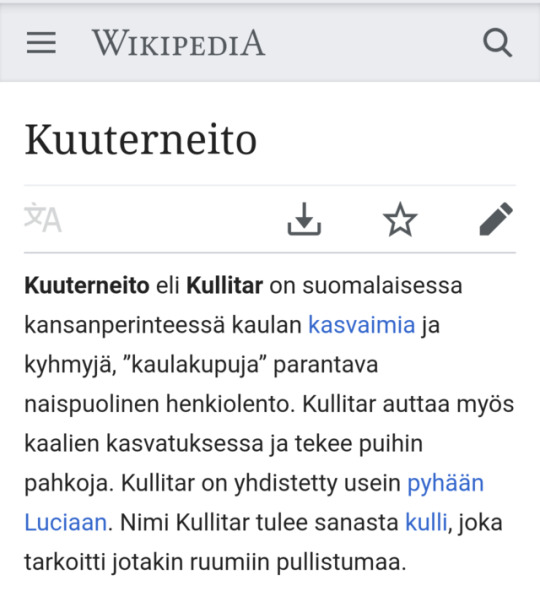Keskusrikospoliisi, Central Kriminalpolisen, National Bureau of Investigation (paskapostitili)
Don't wanna be here? Send us removal request.
Text
Onks suomitumblr hengis vielä
45 notes
·
View notes
Text
Jos näät tän ni kommentoi jotain
haluun tietää et onks kukaa elossa
15 notes
·
View notes
Text
Opo:
"sä olet aina niin positiivinen käytävillä"
Minä käytävillä, positiivisella äänensävyllä:
"mä hyppään kohta katolta"
105 notes
·
View notes
Text
joku koulun käytävällä: se vittu soitti mulle kahdelta yöllä kysyäkseen onko madoilla taskut
486 notes
·
View notes
Text
älkää olettako, että:
- tiedän mistään mitään
- osaan yhtään mitään
1K notes
·
View notes
Text
Naapuri itkee tauotta joka päivä, vieläkään ei ole selvää onko kyseessä koliikkivauva vai abiturientti
455 notes
·
View notes
Text






Oon piirrelly viimeaikoina paljon kanoja ja tässä on ehkä mun lempparit
1K notes
·
View notes
Text
Opettaja ala-asteella: Kaunokirjoitus on tärkeä taito ja se pitää oppia, käyttäkää sitä kaikessa mitä kirjoitatte.
Opettajat kaikkialla sen jälkeen: Jumalauta jos uskallatte käyttää kaunokirjoitusta! Jos sen teette, otan pisteitä pois!
479 notes
·
View notes
Photo

Children, this is dirt.
dirt?dirt? dirt?dirt? dirt?dirt? dirt? dirt? dirt? dirt? dirt?
300K notes
·
View notes
Text

Nimensä perusteella kaikki suomalaiset taitaa olla jo osana täs kulttuuris
303 notes
·
View notes
Text
Today’s 1st graders are younger than Gangnam style.
3K notes
·
View notes
Text
Finnish Grammar Gothic
- There are 14, 15 or 16 cases, depending on who you ask. One might be accusative. Accusative may not exist at all. It depends on who you ask. Who do you ask? You don’t know who to ask. You can ask nobody. The accusative case stares at you, accusingly.
- Imperative exists in three persons. Which three persons, you ask. Plural, they reply. Don’t forget the plural imperative. You stare at your textbook. Your textbook stares back at you. The negative active 2. person imperative has ceased to make any sense. Has it ever made sense?
- You’re learning the difference between the short and the long vowels. The short vowels are short. The long ones are twice as long as the short ones. But really, they say, they’re thrice as long as that. Even longer than that. Ä, you say. Ää. Äää. Äääääääääää- It never stops.
- The verb types are easy, they say. There are only six verb types. Six. Your text book lists only five. What is the sixth verb type? It’s in the next book, your professor says. There is no next book. What is the sixth verb type?
- The vowels come in groups. You don’t know why they’ve come or why they’re in groups. You learn their harmony all the same. You shed a tear when you’ve mastered it. But have you mastered it? The vowel harmony lulls you into a false sense of security. The vowels will strike when you least expect it.
- Consonant gradation.
- There is no accusative, your professor screams at you. It’s genitive! Or partitive! Or plural nominative, but only in the personal pronouns! The accusative does not exist! He is red in the face. Why does the accusative not exist? Do grammatical objects not exist in this language? you ask. (You shouldn’t have asked.) You are met with blank stares.
- In the future you would like to speak Finnish fluently. You make the mistake of saying this aloud. The ground opens beneath your feet and a terrible voice booms: THERE IS NO FUTURE! Silly you, you think. Of course there isn’t. You dutifully note down the three different past tenses.
- Sentence replacements replace sentences, your professor tells you. He does not tell you what the sentences are replaced with. You stare at the list of sentence replacements. There are nine items on the list. One is a quantum sentence replacement. You dare not ask.
- New words are easy to create, they say. So easy. What could possibly go wrong? You decide to create a new word. You have created an abomination.
- You’re conjugating -i nouns. There’s another group of -i nouns conjugated differently. These are very old words, your professor says. There’s another group of -i nouns. These are very old words, she says. Even older words. There’s another group of -i nouns. These are very old words, she says. They are ancient words. Blood and devil words, the past whispers in your ear.
- Some of those 14 or 15 or 16 cases are fossilised, so don’t worry about them, your professor says. Don’t worry at all. But you worry. You must worry.
- You watch a video on facebook. The Most Important Word In Finnish, it’s called. It becomes clear that it is possible to carry entire conversations using only this one word. Your smile stiffens on your face. There is only one word. There has only ever been one word.
2K notes
·
View notes

